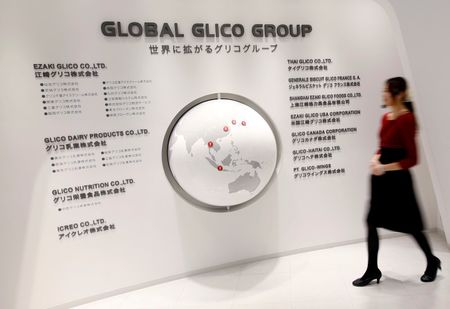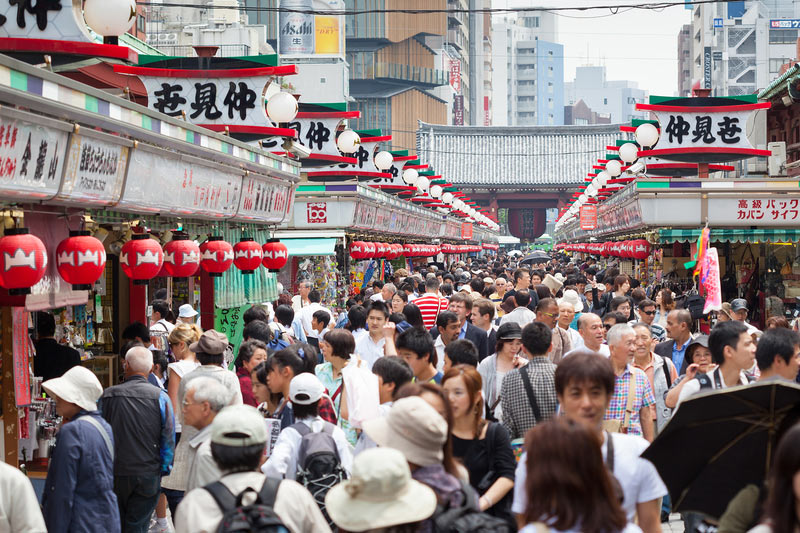By Chang-Ran Kim and Ritsuko Shimizu OSAKA (Reuters) - For the first time in its 92-year history, Japanese snacks maker Ezaki Glico (T:2206) is getting serious about growing overseas, aiming to fatten its Pocky biscuit into a $1 billion brand to rival global giants such as Hershey's and Oreo.
The company's Glico brand and its 48-year-old stick-shaped, chocolate-coated Pocky pretzels are household names in Japan but elsewhere the marque has stalled, capping the firm's overseas business at just a tenth of its $3 billion revenue.
Now, the company is rewriting its branding and marketing strategies for Pocky, targeting a more than doubling in sales to $1 billion by 2020. Only 21 snack brands in the world belong to the billion-dollar club, none of them Asian.
The plan involves the adoption of the Pocky name everywhere except Europe, where a joint venture is complicating matters, plus uniform new packaging and a universal tagline: "Share Happiness".
"The hurdles are high, but if they succeed it would mean a huge boost to profits," said Tomonobu Tsunoyama, senior analyst at Tokai Tokyo Research Center, the research arm of Tokai Tokyo Securities.
The task has fallen on Tsuyoshi Matsuki, appointed as global brand manager for Pocky, a post created in Thailand in 2012.
To strengthen the product's brand identity, Matsuki standardised the package design to a red box for regular chocolate-flavoured Pocky, and came up with the new marketing slogan. This year in Malaysia, he re-branded the snack from "Rocky", its name there for the past four decades.
"Sales were left mostly up to local distributors in Malaysia," Matsuki told Reuters at Ezaki Glico's office in Osaka. "Now, we're going to the stores directly for marketing and maybe next year we'll start running TV commercials to give brand recognition and sales a boost."
That tactic has worked in Indonesia, where sales quintupled in 2013 as Glico enlisted popular girl band JKT48 to plug Pocky on TV. Sales staff also regularly visit Jakarta's schools to hand out free samples from red Pocky vans.
Such efforts boosted Pocky's worldwide sales across 30 markets by a third to around $400 million in 2013.
BLAZING THE TRAIL
Still, challenges abound.
While rivals such as Hershey's, Oreo and KitKat are big in the West, Pocky's global push is starting in Southeast Asia, where Pocky is priced out of reach for many.
"One major difficulty is penetrating the low-income groups. We lose on price against simple snacks like Oreo," Matsuki said, noting that lowering the price was one option.
"But then, Pocky has the advantage of being unique."
Indeed, the snack requires an elaborate production process.
At a factory near Tokyo, noodle-shaped lines of dough disappear into a 45-metre-long oven whose temperature varies from start to end. Cuts are made in the dough just deep enough to ensure the biscuit breaks off after - not before - it's baked to form a straight edge. The chocolate-coating process is tightly guarded as a company secret.
But that hasn't prevented the inevitable copycat products, whose quality Matsuki concedes is improving.
"They're also cheaper than ours, so it's a bit of a headache."
Another challenge is the brand name itself.
In Europe, Pocky is sold as Mikado in a joint venture with Mondelez International (O:MDLZ) - the maker of Oreo, Nabisco and other billion-dollar snacks - and Ezaki Glico would need its partner's agreement if it wanted to re-brand.
"For now, we'll stay with Mikado," Matsuki said.
In the United States, meanwhile, Pocky is still a niche, sold mainly at Asian stores or the Asian section of supermarkets. Big retailers like Wal-Mart Stores (N:WMT) and Costco (O:COST) mainly carry generic brands, leaving room for just a few non-generic products.
By 2020, Matsuki expects Pocky to have only a limited foothold in the U.S. west coast - perhaps establishing a stick-snack section with its non-chocolate cousin Pretz - but not enough sales to pay for TV advertising.
"It's incredibly difficult to enter the United States as a newcomer," Matsuki said. "But if we succeed in North America, we're talking about billions of dollars in sales."
Whether Matsuki succeeds could determine how Ezaki Glico as a whole does on the global stage.
"I look at my job as paving the path overseas for our other brands," he said.

"If we're too slow with Pocky, everything behind it will get delayed. That's a huge responsibility."
(Editing by Stephen Coates)
